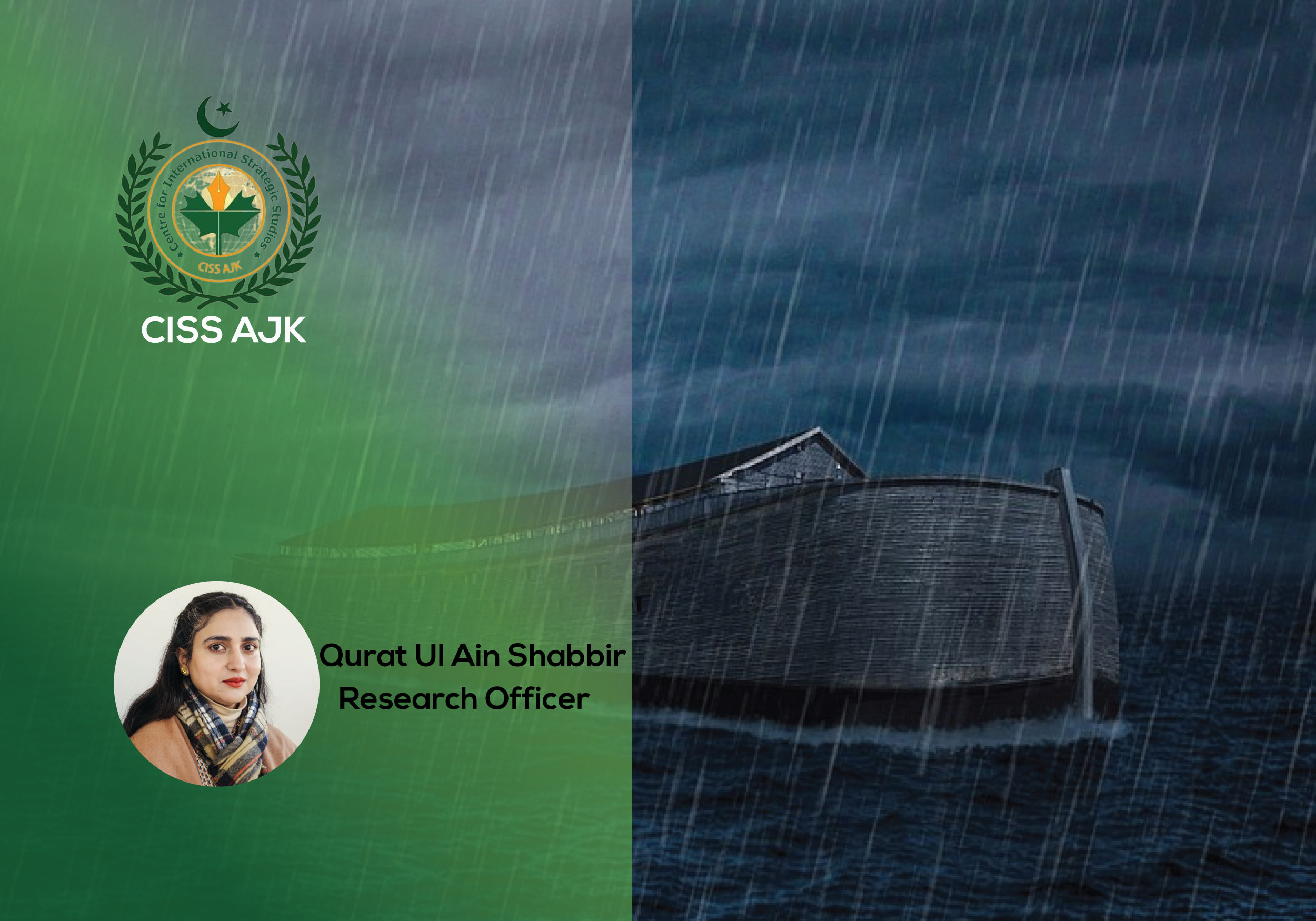The recent floods in Pakistan have unmasked its preparedness to handle natural disasters of this magnitude. Since June of this year, almost 2000 people have been killed in flooding. Even after declaring a national emergency, the relief efforts carried out were not enough to bring the lives of affected back to normal. The unprecedented monsoon rains and melting glaciers are indicating the worst kind of climate change situation country will be facing in future.
On the Human Security Index, Pakistan is ranked at 144th number. According to World Bank report poverty rate in Pakistan may increase 3.7-4 percent due to floods. These figures paint a bleak picture of the human security situation in Pakistan.
Unlike the general misperception, human security does not supersede state security rather strengthens it. Human security complements state security by ensuring security of the individual. Along with ensuring state survival, providing security to the state subjects’ remains the prime responsibility of the state craft. The traditional definition of ‘Security’ emphasizes on state’s coercive capabilities. Such understanding of the term security didn’t incorporate the internal determinants of security such as ethnic or religious polarization, economic and social grievances, political instability, environmental degradation and low human development index etc.
With the evolution of human civilization and emergence of contemporary security frameworks, various strategists emphasized upon the significance and relevance of comprehensive security with modern security frameworks. Resultantly, security policy makers seem to recognize the urgency to include nontraditional security threats in relevant doctrines. For the same purpose, the security agenda has been updated and citizen-centric ‘Comprehensive National Security’ framework was included in the Pakistan’s national security policy for 2021- 2023.
This refreshing change is testament of the realization that human security impacts the social contract between state and its people. When there is human insecurity, it creates resentment against state; therefore, they can become an easy prey of hybrid warfare. It creates instability and other countries can easily weaponized this instability.
Pakistan is a country that has always faced the conundrum of balancing between the security of state of Pakistan and its citizens. Both civilian and military leaders failed hitherto to establish a unanimous national security policy that can handle both internal and external threats. While framing security strategy, policy makers have always underestimated the potential benefits of human and economic development. This lack of regard for human and economic and development has relegated these areas of great importance to a second tier to the security of state.
The statistical evidence shows that economic destabilization would make Pakistan insecure. This argument could be supported by the fact that if the economy is growing by 3.0%-3.57% when a country’s population is growing by over 2%, then it will be extremely difficult for a state to create economic security is an important determinant of national security. Such situations have the potential to trigger social polarization and perception of deprivation among common man which eventually negatively affects national security.
Due to national calamities, economic deficit, poor governance and poor financial management, Pakistan’s governments are left with no choice but to ask for financial assistance from IMF. The bailout packages this monetary organization offers also pose serious challenges to our political and economic sovereignty. A country running on loan or aid usually has weak or ad hoc foreign policy. Thus, it exercises the security strategy from the position of weak.
Gone are the days of fighting a war in a conventional manner. A vital part of hybrid war which includes both convention and irregular warfare, is economic sabotage. Acquiring modern technology and exploring financial markets have become as important as gaining military superiority. Human and economic development must be prioritized and should be treated as a vital pillar of national security. A booming economy can guarantee national security while a weak and bankrupt economy is a threat to security strategy and counterproductive to military superiority. This argument can be validated by considering case in point that during cold war USSR had massive military strength but got disintegrated due to the economic meltdown. The same could be said about Pakistan, that unless economy is not strengthened, the country will have to face massive problems of trying to sustain itself as a secure state.



